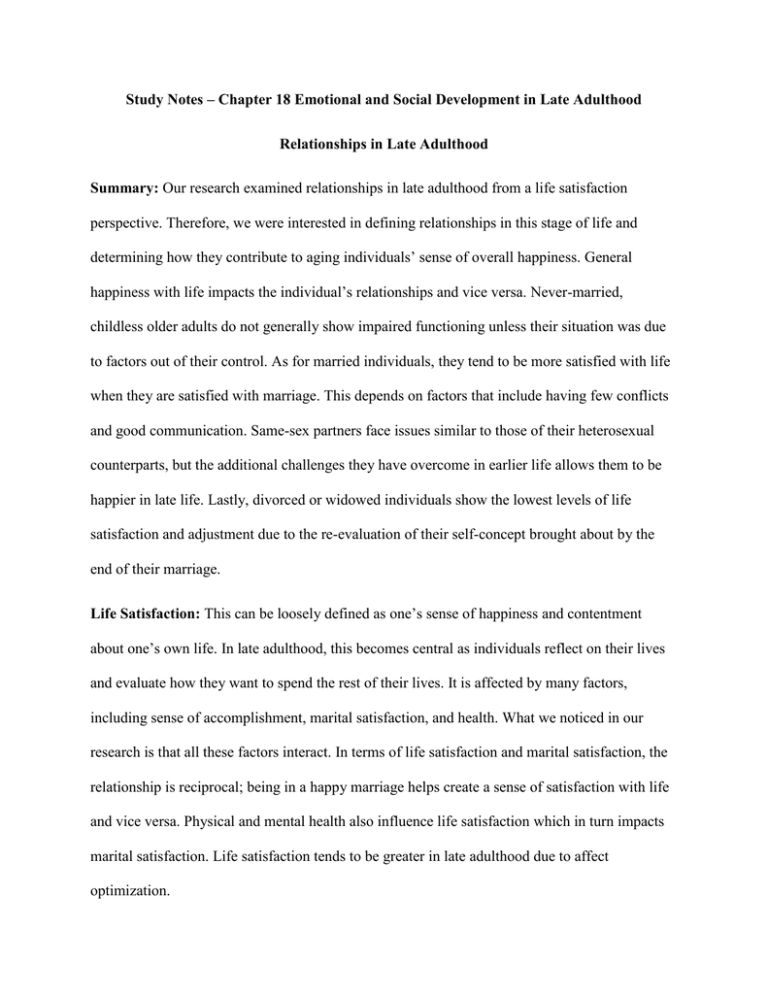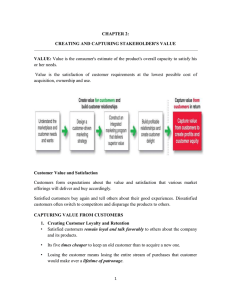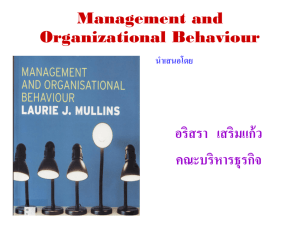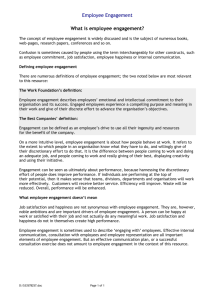Study Notes * Chapter 18 Emotional and Social
advertisement

Study Notes – Chapter 18 Emotional and Social Development in Late Adulthood Relationships in Late Adulthood Summary: Our research examined relationships in late adulthood from a life satisfaction perspective. Therefore, we were interested in defining relationships in this stage of life and determining how they contribute to aging individuals’ sense of overall happiness. General happiness with life impacts the individual’s relationships and vice versa. Never-married, childless older adults do not generally show impaired functioning unless their situation was due to factors out of their control. As for married individuals, they tend to be more satisfied with life when they are satisfied with marriage. This depends on factors that include having few conflicts and good communication. Same-sex partners face issues similar to those of their heterosexual counterparts, but the additional challenges they have overcome in earlier life allows them to be happier in late life. Lastly, divorced or widowed individuals show the lowest levels of life satisfaction and adjustment due to the re-evaluation of their self-concept brought about by the end of their marriage. Life Satisfaction: This can be loosely defined as one’s sense of happiness and contentment about one’s own life. In late adulthood, this becomes central as individuals reflect on their lives and evaluate how they want to spend the rest of their lives. It is affected by many factors, including sense of accomplishment, marital satisfaction, and health. What we noticed in our research is that all these factors interact. In terms of life satisfaction and marital satisfaction, the relationship is reciprocal; being in a happy marriage helps create a sense of satisfaction with life and vice versa. Physical and mental health also influence life satisfaction which in turn impacts marital satisfaction. Life satisfaction tends to be greater in late adulthood due to affect optimization. Affect Optimization: According to Labouvie-Vief’s theory, older adults are better able to “maximize positive emotion and dampen negative emotion” (Berk, 2013, p. 480). Our research supports this theory by showing that older adults experience as many positive emotions as younger adults, but fewer negative emotions. In addition, they exhibit better emotional regulation. Therefore, when they actually do encounter negative feelings, they are more apt to manage them. This is related to the fact that older adults realize that life is nearing its end. As a result, they want to enjoy life and focus on the positive rather than dwelling on the negative. This means that they also have fewer conflicts, which contributes to their life and marital satisfaction. Optimal aging: Optimal aging can be defined as the ideal for development in late adulthood where there is an emphasis on the positive rather than the negative aspects of life in terms of emotions, health, relationships, and so on. Thus, older adults that experience optimal aging are happy (with their marriage or lack thereof, with their daily life, with the accomplishments, with their finances, etc.), healthy (mentally and physically) and have a sense of fulfillment. This is closely related to the concept of affect optimization. Being able to focus on the enjoyment of life is significant in terms of overall life satisfaction which will then affect an individual’s relationships through the aforementioned bidirectional association. Erikson’s Ego Integrity versus Despair: This is the last of Erikson’s stages of psychosocial development. According to this theory, older adults who successfully resolve this stage are those who are able to come to terms with what they have done with their lives. This is essentially representative of life satisfaction. Otherwise, older adults experience despair, which occurs when individuals feel they missed out on life and experience regret. A good example to illustrate this is the never-married, childless older adults. What we have found is that singleness and childlessness in and of themselves do not correlate to life satisfaction. Rather, whether their situation was voluntary or not is what matters. Those who remained single and childless by choice seem to have achieved ego integrity. They have developed normally and are as happy with their lives as married individuals are. They are satisfied with the way they lived their life and what they have accomplished. However, those who stayed single due to factors out of their control are closer to experiencing Erikson’s despair and show lower levels of well-being and life satisfaction. They may show signs of regret or simply be disappointed by the way their life turned out.





